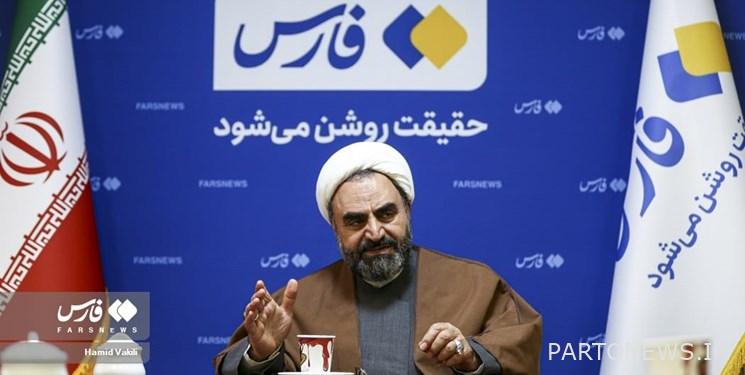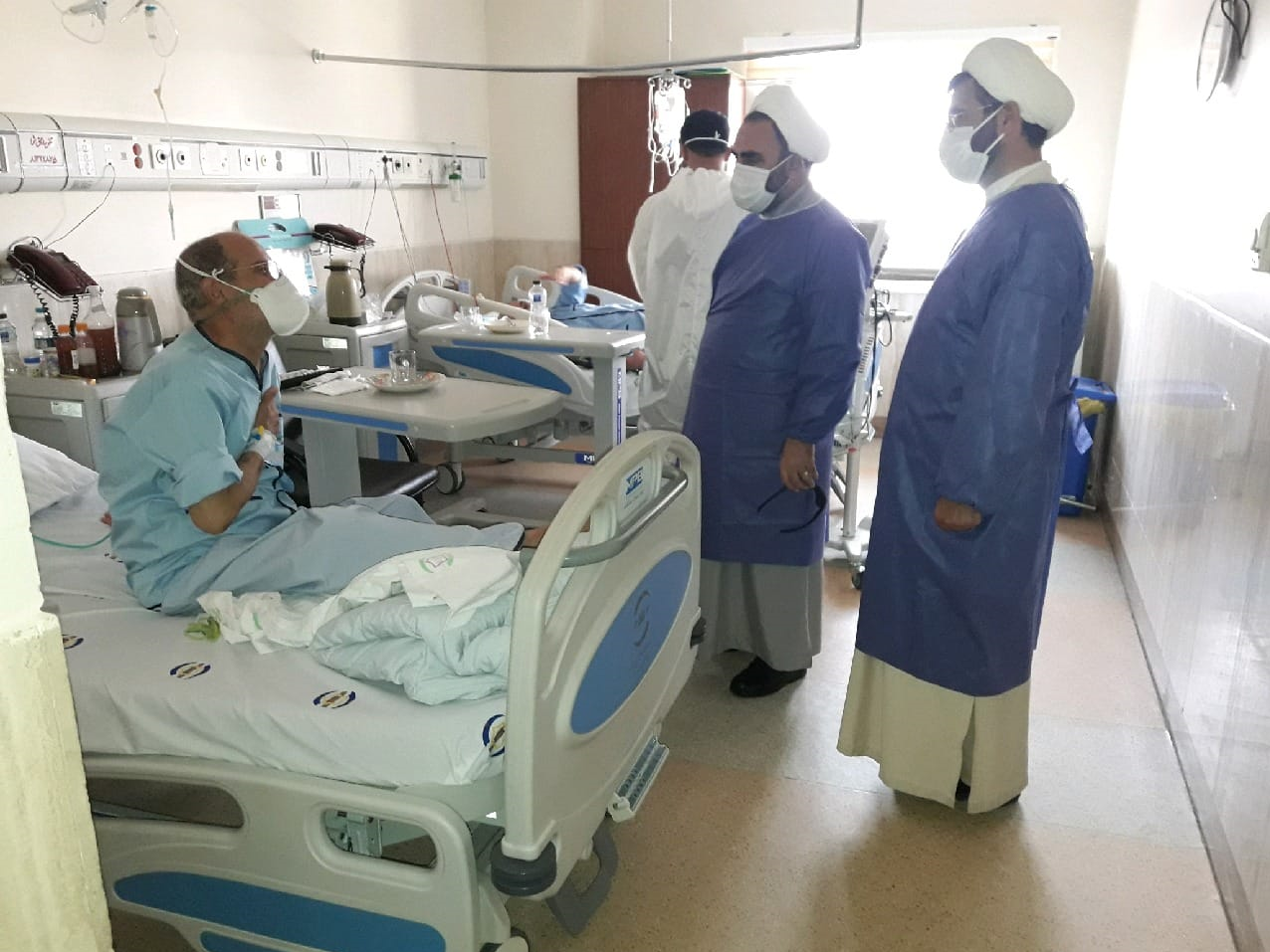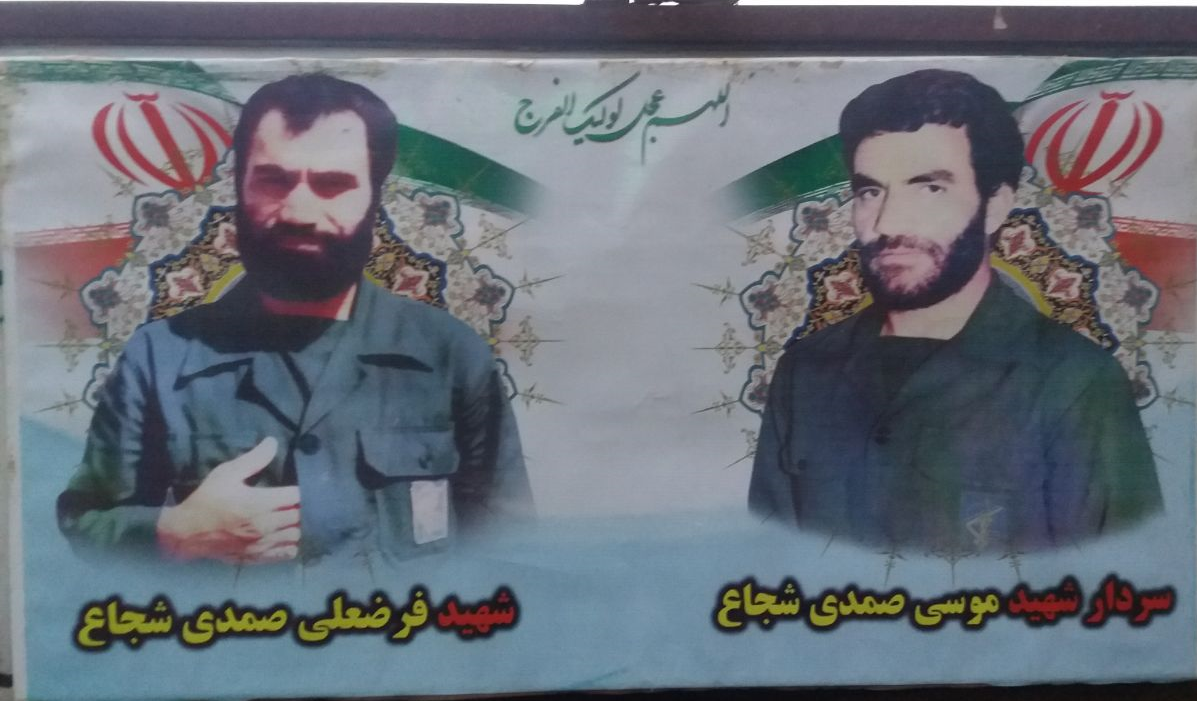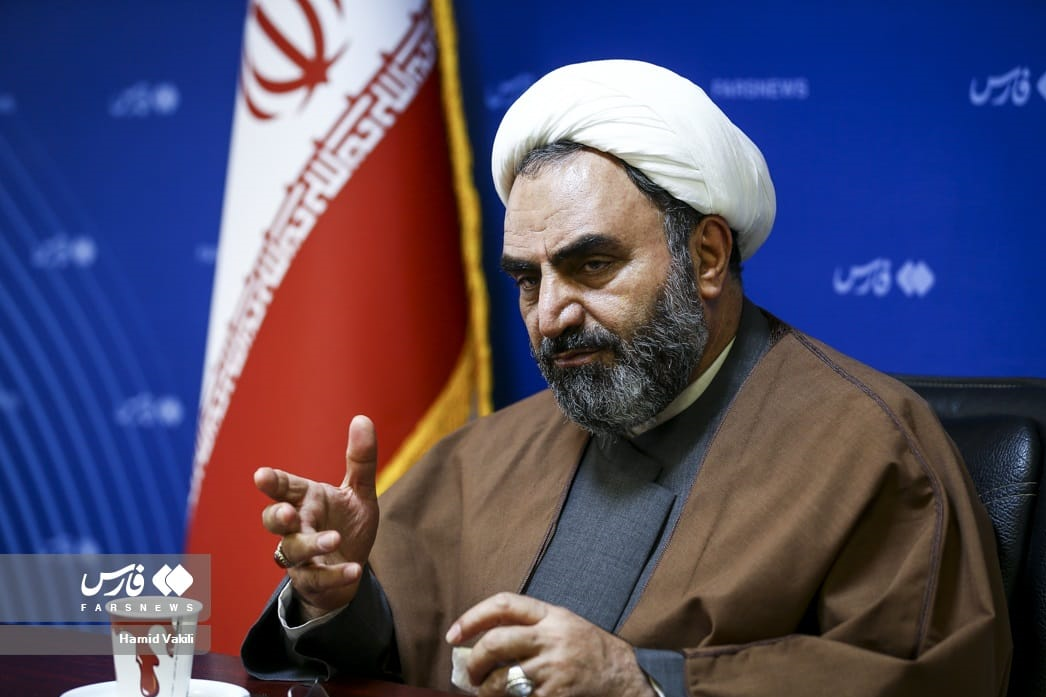Imam Khomeini called this family brave

Life group: Soodabeh RanjbarIt seems that Hojjatoleslam “Reza Ali Samadi Shoja”, the representative of the Supreme Leader of Baqiyatallah University of Medical Sciences, from the age of 18 when his eyes fell on the bodies of his young brothers and martyrs, his heart is full of their courageous lifestyle and flight, and that’s all. So that he remembers less than his 5 years of captivity and martyrdom. The courage of the brothers “Musa Samadi Shoja” and “Farzad Ali Samadi Shoja” spread in the west of the country so much that their last name was changed from Samadi to Samadi Shoja. Of course, this change of family name has a story that can be heard; We do not know, perhaps, in the meeting that “Musa Samadi” had with Imam Khomeini with his fighting friends; His friends narrated to the Imam the story of the heroism and bravery of Moses, who was the commander at the time, and the Imam gave the adjective of bravery to the commander of operations in the city of Songor.
So that now courage has become the lifestyle of this family and today Hojjatoleslam “Reza Ali Samadi”, the younger brother of this family in this conversation does not talk about himself, his martyrdom from the hard time of his captivity and says: “Let my story remain for “Another time.” We ask when is the time? He answers: “Let it stay for my hereafter!”
A father who indoctrinated his rabbits
He says about the patience of his parents that they did not mourn the martyrdom of their two sons for a month in 1983. A father who buried both rabbits with his own hands. During all this time, Reza Ali was only 18 years old and witnessed all these events. While studying, he says: “My father bravely performed his indoctrination ceremony for his sons. He did not raise his eyebrows because he believed his sons were the way they should be; Gone”.
He tells his mother that, contrary to the Kurdish ritual and culture of mourning, he did not mourn or mourn the martyrdom of his youth; He did not cut his hair or scratch his face. In the most difficult days, the mother just thanked God. The reputation of the Samadi brothers, especially the martyr Musa Samadi, is still famous for their ambush, mountain roads and Kurdish passes. His document is the stories that are still narrated heart to heart about the heroism of Martyr Musa.

The idea of volunteering students to the hospital
Hojjatoleslam “Reza Ali Samadi Shoja”, the representative of the Supreme Leader of Baqiyatallah University of Medical Sciences, used all the experiences of the war with the outbreak of the corona virus crisis, to use the volunteer force in this battlefield as well as during the defense. It was with the experience of the presence of Basijis and volunteers in the 8 years of holy defense that the idea came to him that the years of defense have been repeated.
The presence of volunteers and students at Baqiyatallah Hospital can be documented in such a way that volunteer and student forces were at the forefront in this hospital. In the first days when the idea of the presence of volunteer students in the hospital was raised, many people were beating the drum to ask what the clergy had to do with the hospital ?! Haj Agha Reza Ali Samadi, as the person who came up with this idea in the think tank, should have answered this question more than the others, but he knew what was going to happen!
A young student who was captured by the enemy
Haj Agha Samadi Shojae had experienced this situation once again when, at the age of 20, he was captured by the enemy as a young student. Stay. He told himself during the Corona virus crisis that the students here on the battlefield also had something to say; They can reduce the sadness of patients. Now is the time to fight despair and fear. Haj Agha rolled up his sleeves and asked the students and jihadists to enter the hospital to cheer up the patients. I ask, how did this idea come to your mind? He smiles and says, “I once experienced captivity. At that time, it was just hope that made us feel good. When people were taken to hospital beds, I felt with all my being that these patients needed love and hope.
Honestly, I got infected with the virus early on and I fully understood that in addition to medical measures, emotional support is needed to save people so that they do not lose hope. People needed someone to sincerely calm their hearts. This was in a situation where there was no disease. Hospital staff were very involved, so students and jihadists had to enter the field. In a few months, we saw how positive their presence was. We had entrusted it to the students; If the conditions are right, they should make a video call with the patient’s family so that the patient does not move away from the family and the fear of leaving does not penetrate. We had entrusted them to sit at the foot of the patient’s heartache. To take care of. Take the patient’s hand and take him to the bathroom. We have seen jihadists clean the beds of the sick and perform the most private work of the sick, things that children and close relatives may not be able to do. He was a student who volunteered to brush the artificial teeth of old men and women. All this was done with love. “It got to the point where some critics thanked the students for their presence in the hospitals and cried out of joy.”
When there was only one blade between friend and foe
During the conversation, Haj Agha Samadi says more than his brothers and escapes a little. In all the days of Corona, he did not forget the moment of remembrance of the insecurity of the Kurdish villages. The experience of those days was a lesson for today. It was as if friend and foe had come home together. The virus that swallowed and came forward and the volunteers who died and risked their lives. They avoid saying that these words and feelings are not a joke. The memory of “Kadkhoda Ahmad” Kadkhoda, one of the insecure villages in the first days of the war, tells us: The counter-revolution was at the ears of the people. “For a moment, fear did not cast a shadow over the people.”
Haj Agha pauses to listen to what he hears and says: “That night, the IRGC forces had become guests of Kadkhoda Ahmad’s house for dinner. Less than an hour after their presence, the Democratic forces kicked Kadkhoda’s house, saying, “We are your guests for dinner. Prepare food for us.” Kadkhoda initially thought they had tracked down the troops, but he gritted his teeth and took a few minutes from the Democrats to inform the House. In this short opportunity he had asked the troops to take off their shoes and sit in a small room and be careful not to even cough. He had sent the Democrats home. He had entertained them and left them two hours after dinner. During this time the physical distance between the troops and the Democrats was just a wall. If the Democrats were aware of the troops, they would skin them alive. Their drawing was so barbaric. That night, the troops were much smaller than the Democrats. “Now the same thing happened in the hospitals. The virus was on our ears and at any moment one of the volunteers could have helped the people get the virus, but the students and jihadists did not leave the battlefield against Corona.”
For the brave Haji Agha Samadi, the experience of the days of supporting coronary patients and the years of holy defense are intertwined. Sometimes even the experience of the war years creeps into his coronary days as if they are not far apart.

The story of the courage of Martyr Musa
We ask him about the story of the bravery of Martyr Musa. He pauses for a moment and says: “The story of the bravery of Martyr Musa is so great that I will suffice with one or two narrations here. Both of my brothers were valuable speakers of Mr. Kafi before the war. They were even active in the political struggles before the revolution. As soon as the war years began, they volunteered, and Martyr Musa was very physically fit because of his presence in martial arts. After the hypocrites, counter-revolutionaries and democrats had infiltrated the western cities of the country. It is reported that in Gheshlagh pass, where the city of Songor could be connected to other cities, the enemy is cutting off the connection of this pass, and any situation may become very bad. Now I do not know what happened when my brother Musa rode alone in a jeep with a gun to the winter pass to break the siege. Faced with an enemy attack. His car is shot at so much that he is forced to throw himself out of the car. He defends with one hand and one weapon in such a way that the enemy does not think that this defense is only from one person and he retreats.
I heard this story from the people of the same area and the commanders of various operations. People who tell such an epic story in Kurdish themselves that I miss my brother every time I hear it. When the sound of gunfire and gunfire falls asleep, everyone thinks that even though the enemy retreated from this pass, the commander of Musa must have been martyred! Can one person win the battle alone and escape and survive? But the story was something else. Within a day or two, Musa reached one of the IRGC camps, and everyone saw in disbelief that he was a one-man army and had returned victorious. “I think the same narration had reached the Imam when he was given the attribute of bravery. Maybe another story was narrated to the Imam, but I know very well that Martyr Musa took this attribute from the Imam during his lifetime and sat down with him.”

When people gathered to ask for it
Hojjatoleslam Samadi Shoja ‘, the second brother of his martyr Farzad Ali Samadi Shoja, says: “He was a teacher. There was a rule among the villagers that they would accept whatever he said. It had happened that he had reconciled two peoples who had been arguing for years. When Martyr Musa is pursued in the Sardasht region along with two other commanders, so that the counter-revolution sets a reward for their arrest, Ali’s presumably tells Musa to be careful.
But the counter-revolution had ambushed Musa and was going to the region with some forces to break the siege, but he did not know that this was just an ambush. He is surrounded from behind after a few bullets are fired at his chest and a free arrow is fired at his head. The villagers had seen how the assailant of Martyr Musa had trampled on his lifeless body. Moses commanded that he be buried with his companions in Paradise. Farzad Ali had gone to Tehran to perform the ceremony and had not been in Sanghar for a few days. Maybe it was not just a few days, but there was so much space among the people that the people had all gathered to see him at one of the camps and asked him to tell Farzad Ali to return, he returned but a month after the martyrdom of Musa he was also in Sardasht He was martyred.
I had a student son as if I did not have one
We ask Haj Agha to tell us about himself and he continues to dodge. I ask, how did they allow you to be on the front with the heat that your family had seen? “Nothing,” he says. Needless to say, we were guests at one of my brothers’s house the night I was scheduled to be sent. My parents were too. We listened to a tape of Sheikh Hussein Ansari’s speech on the subject of martyrdom with all family members. I remember well that we all cried heartily. I can still hear my mother crying, but there was nothing to say. I was captured and held captive for five years. My identity was hidden for the first six months, but they found out through spies in Iraqi prisons that I was a student.
From then on, all pain, suffering and torture multiplied. My veteran was born from that time. I went to death several times, but my life was in this world. What I remember from all the years of my captivity is a recollection of my father. Apparently, in one of the neighboring villages called “Khoshyar” the TV channel was connected to the Iraqi network. From time to time, the Iraqi network showed Iranian prisoners on television. My father is invited to their house to be our guest tonight; They are supposed to show a number of Iranian prisoners through this network. Maybe your son Reza Ali is among these prisoners. My father accepts and goes to the village. He sat for a few minutes at the Iraqi TV channel, but he could not stand the insults that were being leveled at the Iraqi regime system by the Iraqi TV channel. He said out loud, “I’m not looking for my son, either turn off the TV or I’ll leave your house.” I had a student son and I think I do not have any more, but I am not willing for my religion to insult my country and my leader and for me to listen.
End of message /
You can edit this post
Suggest this for the front page

